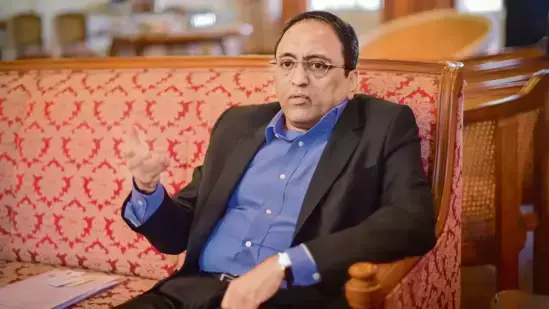
If You Ask an IT Employee to Come to Office, He Says ‘Bye’: L&T Chairman
In a recent interview, Larsen & Toubro (L&T) Chairman SN Subrahmanyan sparked controversy with his remarks on work culture and employee expectations. This comes after he previously drew flak for advocating a 90-hour workweek. While some may argue that his latest comments are an attempt to shift the focus away from his earlier statement, it’s undeniable that his observations on the current work environment have raised important questions about the future of work.
Subrahmanyan’s comments began with a nostalgic tone, reminiscing about his early days at L&T in 1983. He recalled his boss’s expectation that employees would be willing to relocate for the sake of their job. “When I joined L&T in 1983, my boss said, if you’re from Chennai, you go to Delhi and work,” he said. Fast-forward to the present, and the Chairman’s perspective on employee expectations is starkly different.
Today, if you ask an IT employee to come to the office and work, he says ‘bye’ (he resigns).
These words, spoken by Subrahmanyan, sum up the changing dynamics of the modern workplace. The IT sector, in particular, has seen a significant shift towards remote work and flexible working hours. The COVID-19 pandemic has accelerated this trend, with many companies adopting work-from-home arrangements to ensure business continuity.
Subrahmanyan’s statement highlights the stark contrast between the expectations of employers and employees in today’s digital age. Gone are the days when employees were willing to relocate for the sake of their job. With the rise of remote work, employees now have more freedom and flexibility to choose where and how they work.
This shift in employee expectations has far-reaching implications for businesses. Gone are the days of mandatory office attendance, and companies must now adapt to the changing needs of their employees. It’s no longer about demanding employees to come to the office; instead, it’s about creating an environment that fosters productivity, collaboration, and employee satisfaction.
So, what does this mean for employers? For starters, it’s essential to recognize that employees are no longer bound by geographical constraints. Companies must be willing to accommodate flexible working arrangements, including remote work, flexible hours, and compressed workweeks. This not only benefits employees but also enhances business productivity and efficiency.
Moreover, companies must prioritize employee satisfaction and engagement. In today’s competitive job market, employees have more options than ever before. To retain top talent, employers must focus on creating a positive work environment that values work-life balance, provides opportunities for growth and development, and recognizes employee contributions.
Subrahmanyan’s comments also raise questions about the role of technology in shaping the future of work. With the proliferation of digital tools and collaboration platforms, remote work is no longer a novelty. In fact, technology has enabled seamless communication and collaboration, making it easier for employees to work from anywhere.
However, it’s essential to recognize that technology is only a tool, and its effectiveness depends on the human factor. Employers must prioritize building trust, fostering open communication, and empowering employees to work independently. This requires a fundamental shift in the way we approach work, from a hierarchical and command-and-control structure to a more collaborative and decentralized approach.
In conclusion, Subrahmanyan’s comments serve as a wake-up call for employers to adapt to the changing needs of their employees. The future of work is no longer about demanding employees to come to the office; it’s about creating an environment that values flexibility, collaboration, and employee satisfaction. As the IT sector continues to evolve, it’s essential for businesses to prioritize remote work, flexible working hours, and employee engagement to remain competitive in the market.






